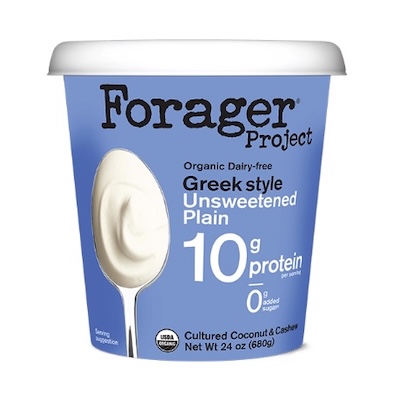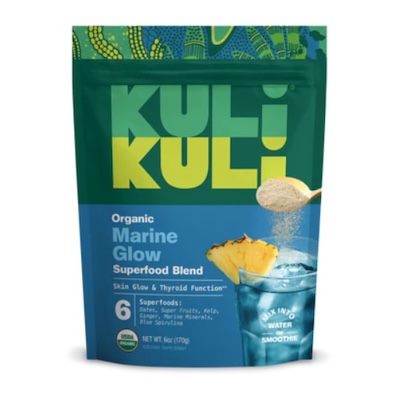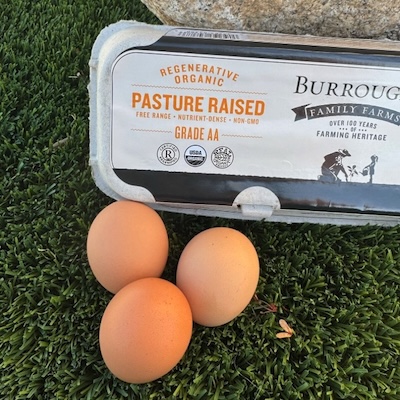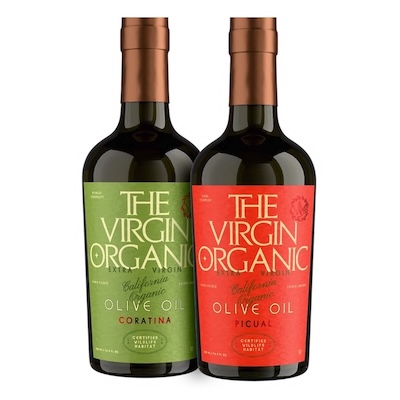
GMOs Consistently Fail American Citizens. At What Point Will Our Government Realize This?
( At Natural Products Expo West 2023, a trade show booth of the GMO 2.0 brand Bored Cow)
How Organic Insider operates: We accept no advertising, we have no paywalls and we make our newsletters free to everyone because vital information about our industry needs to get out to as many people as possible. Please consider supporting our work and becoming an Organic Insider+ subscriber, whether you are an individual or a company. Thank you so much.
When an organic product is introduced into the marketplace, there are hardly ever any issues.
Yet, when a novel and unproven GMO product is introduced into the marketplace, it is the complete opposite, and the script is generally the same — unfulfilled promises, unforeseen consequences, lawsuits, patents, secrecy and attacks on critics.
EARLY GMOS
We saw it first with Roundup-resistant GMO corn and soy crops, which were promised to feed the world.
Not only did they not feed the world, but according to the Glyphosate Global Study, use of the cancer-linked glyphosate has increased 15-fold since genetically-modified crops were introduced in 1996. Bayer and Monsanto have been subsequently hit with billions of dollars in lawsuit judgments.
Another cancer-linked herbicide, dicamba, has had its own issues.
The U.S. Court of Appeals for the Ninth Circuit said that this chemical has “torn apart the social fabric of many farming communities” due to the property damage caused by its spraying on GMO crops and the ensuing conflict between neighbors. It has even resulted in a murder.
GMO 2.0 — PRECISION FERMENTATION
What has since followed is GMO 2.0 animal-free “whey protein,” which utilizes a process that the industry often refers to as “precision fermentation.”
GMO/Toxin Free USA and Organic Consumers Association recently filed a lawsuit against Perfect Day, the producer of ProFerm — the GMO 2.0 “whey protein” used by brands such as Bored Cow and Myprotein — alleging material omissions and deceptive marketing of the product.
“The ProFerm product was marketed as bioidentical to cow’s milk, and that is simply not true,” said P. Renée Wicklund, co-founder of Richman Law & Policy, the firm that is representing the plaintiffs.
According to the Health Research Institute (HRI), which analyzed the product, ProFerm is only 13.4% cow’s whey protein and contains a fraction of the nutritional value of cow’s milk. It is missing 69 nutrients and has no omega-3 fatty acids or vitamins B2, B5 and E.
HRI also found that ProFerm contained 93 fungal compounds not found in cow’s whey, and the fungal proteins and compounds have never been part of the human diet and are unknown to science.
Interestingly, something similar took place with another GMO 2.0 product — the Impossible Burger — when 46 of its proteins were discovered only after a Freedom of Information Act request was granted.
According to Michael Hansen, PhD, senior scientist at Consumer Reports, “These 46 proteins have not been in the human diet before but are nevertheless being presented in the Impossible Burger, with no safety assessment having been completed for the protection of consumers.”
GMO 2.0 — GENE EDITING
The next generation of GMOs set to flood the market are gene-edited foods.
Gene editing uses modern biotechnology tools, often CRISPR or TALEN, to rearrange or delete a seed’s existing genetic code to achieve a particular outcome, such as a piece of fruit that doesn’t brown when cut open.
Yet, this hasn’t stopped countries or gene-editing companies from calling them “Non-GMO.”
“The argument that a gene-edited crop is not a GMO is factually incorrect. Statements such as these are misleading and misinforming consumers,” put forth Michael Hansen, PhD.
According to Megan Westgate, executive director of The Non-GMO Project, “Companies that make gene-edited foods have tried to apply for Non-GMO Project verification in the past and were denied.”

Some entrepreneurs and scientists refer to gene editing as “100% accurate” and “exceptionally precise.”
Based on the very grave and unintended consequences of gene editing, as reported in both Nature and the MIT Technology Review, these characterizations could be seen as greatly misleading to the public.


IN CONCLUSION
Just as our government is starting to take on artificial ingredients and ultra-processed foods, it must also address the genetic engineering of our food supply, not to mention that of animals, trees, insects and microbes.
The serious risks and failed promises of GMO technologies speak for themselves, and embracing the precautionary principle is an absolute imperative.
 |
With gratitude, 
Max Goldberg, Founder |
Quick Hits
* Although there is no official press release, a USDA spokesperson confirmed that as of May 6th, the agency has cleared the Organic Market Development Grant program and Transition to Organic Partnership program to resume approving and making payments.
* The New York Times profile of “megastar” Vani Hari.
* According to Dr. Bronner’s analysis of B Corp’s Standards, the Version 7 update “shows great improvement but not enough to prevent greenwashing.”
* To support its new phase of growth, Suja Life has added Nicole Portwood as chief marketing officer, and Saxon Seay has been appointed as the company’s first chief strategy officer.
* Nature’s Path has introduced Brother Nature in a new campaign celebrating the delicious side of organic, and applications are now open for the company’s 15th year of its Gardens for Good program.
* How GoodSAM Foods is supporting women’s empowerment in rural Colombia through baskets.
* Could this Regenerative Organic Certified® ranch in Arizona be a model for Southwest farmers?
* The New York Times asks Laurie Sebestyen and Mike Buechi, owners of Mike’s Organic Curry Love, how tariffs are impacting their business.
* Ivanka Trump is now in the fresh produce business.
New Organic Products
Dairy-Free Greek Style Yogurt from Forager Project
After three years of R&D, Forager Project has released its Greek Style Yogurt. Thick and creamy, it contains six strains of active cultures and 10g of protein per serving, derived from cashews and rice. USDA certified organic, dairy-free, gluten-free and no added sugar, oils, starches or natural flavors. Available in 24oz.Marine Glow Superfood Blend from Kuli Kuli
New from Kuli Kuli is Marine Glow Superfood Blend, a combination of six functional powders -- dates, super fruits, kelp, ginger, marine minerals and blue spirulina. Each serving provides 100% of your daily iodine, and it supports skin glow and thyroid function. USDA certified organic, gluten-free and vegan. Available at retailers nationwide, including Whole Foods Market and Sprouts.Real Organic Project and Regenified™ Pastured Eggs from Burroughs Family Farms
The cage-free and pasture-raised organic eggs from Burroughs Family Farms are certified by both Real Organic Project and Regenified™, and the hens live in mobile coops that are rotated through the farm's pastures. Available for purchase at the farm in Central Valley, as well as at retailers in Northern California such as Whole Foods Market, Good Earth Natural Foods and Rainbow Grocery.Extra Virgin Olive Oil from The Virgin Organic
The Virgin Organic is offering two varieties of its Extra Virgin Organic Olive Oil -- picual and coratina. The olives are hand-picked and are grown on a Certified Wildlife Habitat in California, and the products are Certified Extra Virgin by The Applied Sensory Olive Oil Taste Panel.
Weekly News Summaries

Chobani buys Daily Harvest
By Christopher Doering
A great outcome for founder Rachel Drori and CEO Ricky Silver, and Chobani is getting a fantastic asset in Daily Harvest.
Less Farmland is Going for Organic Crops
By Caitlyn Daproza and Patrick Whittle
America’s certified organic acreage fell almost 11% between 2019 and 2021, with farmers saying that certification is too costly, doesn’t do enough to combat climate change and appears to be losing cachet in the marketplace. Very concerning.
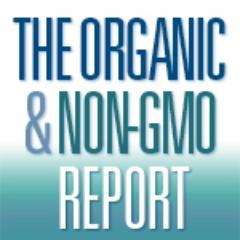
Organic Farmer Raises Red Flag over Organic Fraud Imports, Says Pesticide Residue Testing is Not Happening
By Ken Roseboro
In a shocking admission, an Argentine exporter of organic grains said his company had two levels of purity for organic grain exports: one for the European Union and other countries, and one for the United States.
Trump Officials Balk at RFK Jr.’s Attack on Pesticides
By Kristina Peterson, Josh Dawsey and Liz Essley Whyte
Pushback in the Trump administration, as to whether pesticides will be blamed for America's health woes in the upcoming MAHA Assessment Report, to be released on May 22nd.

NOFA-NY: USDA Commits to Restore Purged Climate Webpages
On May 12th, the USDA reversed course and committed to restoring climate-focused webpages purged from its websites after a lawsuit was filed on behalf of organic farmers.

Danone to purchase Kate Farms
By Keith Nunes
Danone is acquiring the California-based Kate Farms, an organic manufacturer of formulas and shakes for everyday and specialized medical needs. Terms of the acquisition were not disclosed.

Tractor Beverages raises $15M
By Virginia Thomas
The Idaho-based organic specialty soda company has landed $15 million in venture funding from Keurig Dr Pepper and others.

Protest Urges Driscoll’s to go Fully Organic
By Nick Sestanovich
While the Watsonville-based company sells a line of organic berries, Driscoll’s is not fully organic and still uses pesticides.

Working Conditions on Organic Farms Studied
By Melissa Hansen
Organic agriculture doesn’t necessarily translate into better working conditions for farmworkers, a University of California study found, with cost being a major issue.
Want to share this newsletter on social media? You can use this link: Newsletter Link
The material in this newsletter is copyrighted and may be reprinted by permission only. All requests must be in writing. Please use our contact form to request republication rights.
Newsletter Archive
Quick Hits
* Although there is no official press release, a USDA spokesperson confirmed that as of May 6th, the agency has cleared the Organic Market Development Grant program and Transition to Organic Partnership program to resume approving and making payments.
* The New York Times profile of “megastar” Vani Hari.
* According to Dr. Bronner’s analysis of B Corp’s Standards, the Version 7 update “shows great improvement but not enough to prevent greenwashing.”
* To support its new phase of growth, Suja Life has added Nicole Portwood as chief marketing officer, and Saxon Seay has been appointed as the company’s first chief strategy officer.
* Nature’s Path has introduced Brother Nature in a new campaign celebrating the delicious side of organic, and applications are now open for the company’s 15th year of its Gardens for Good program.
* How GoodSAM Foods is supporting women’s empowerment in rural Colombia through baskets.
* Could this Regenerative Organic Certified® ranch in Arizona be a model for Southwest farmers?
* The New York Times asks Laurie Sebestyen and Mike Buechi, owners of Mike’s Organic Curry Love, how tariffs are impacting their business.
* Ivanka Trump is now in the fresh produce business.
